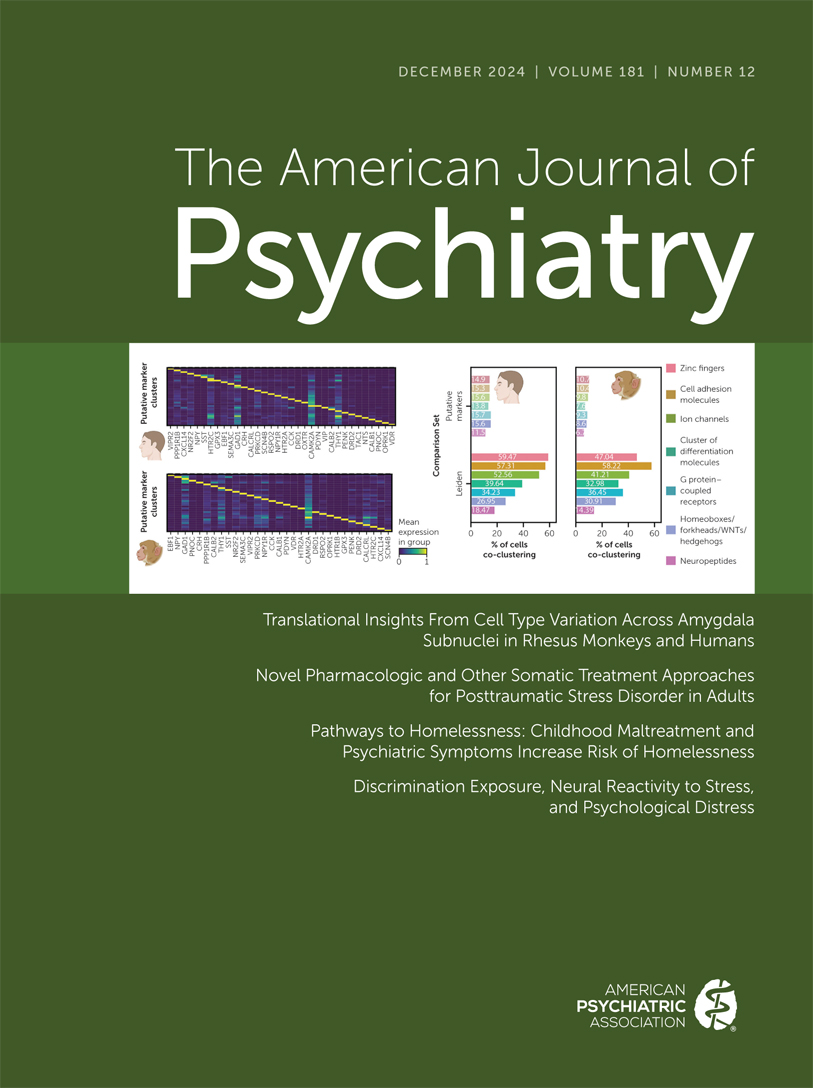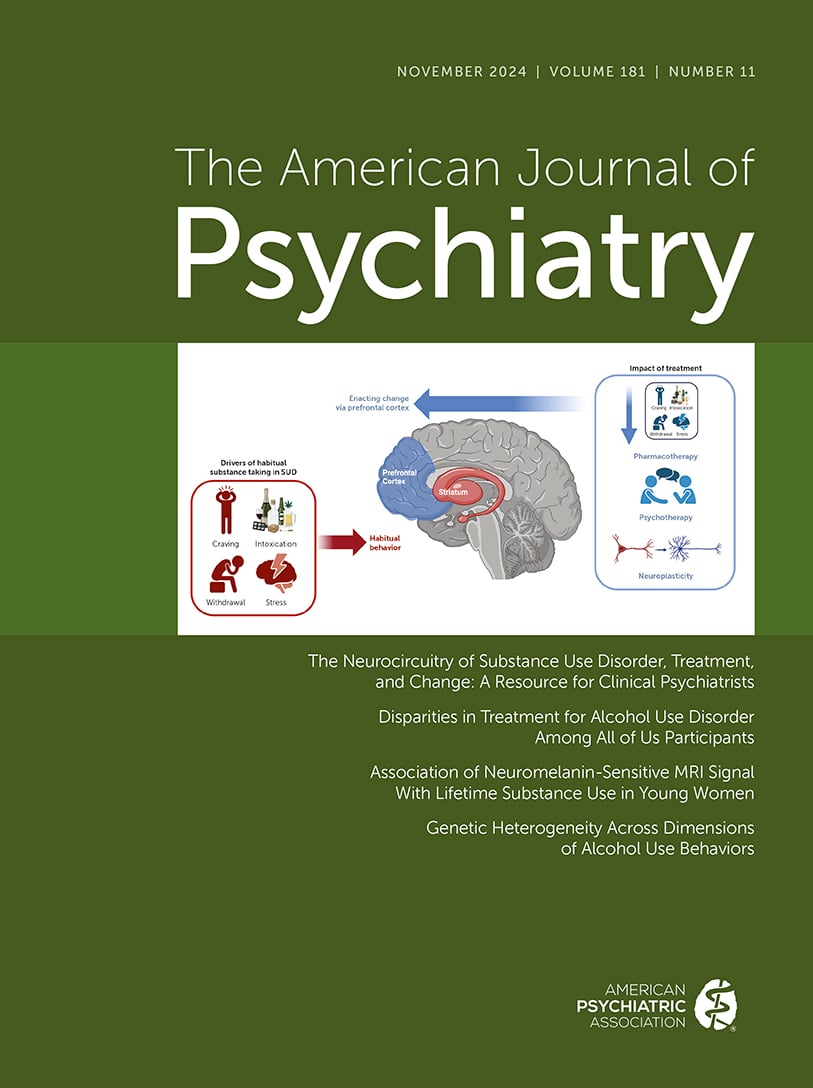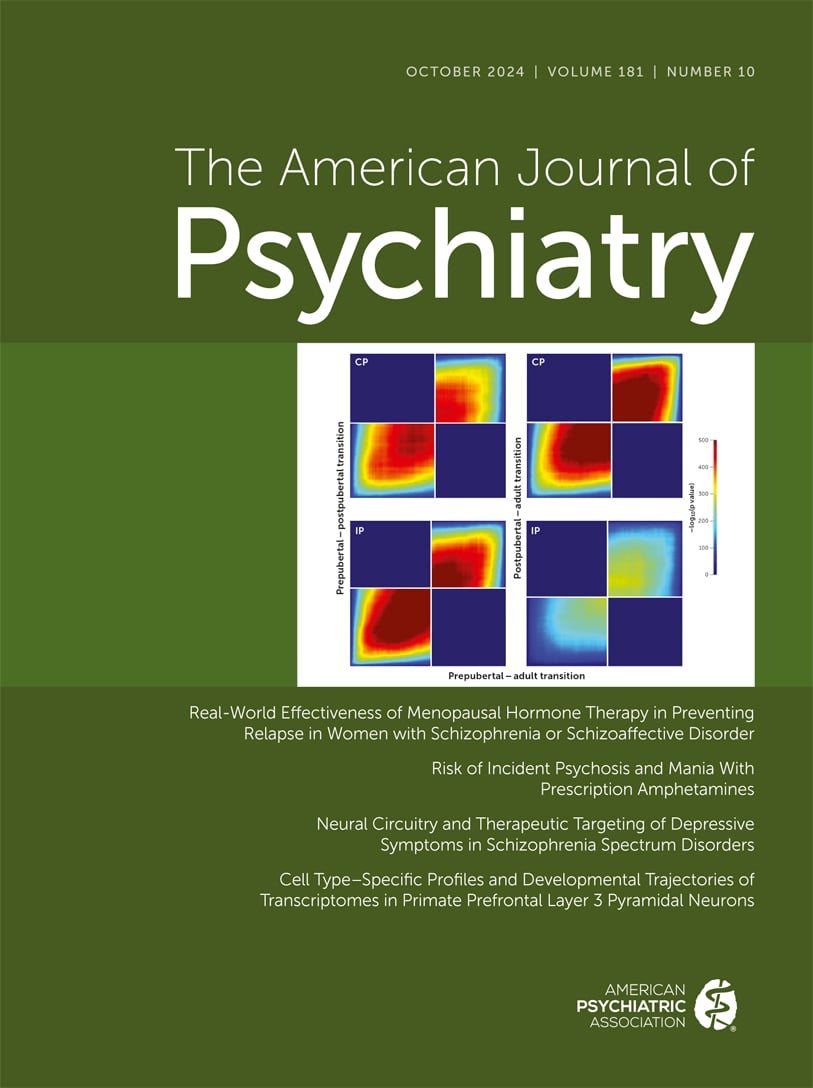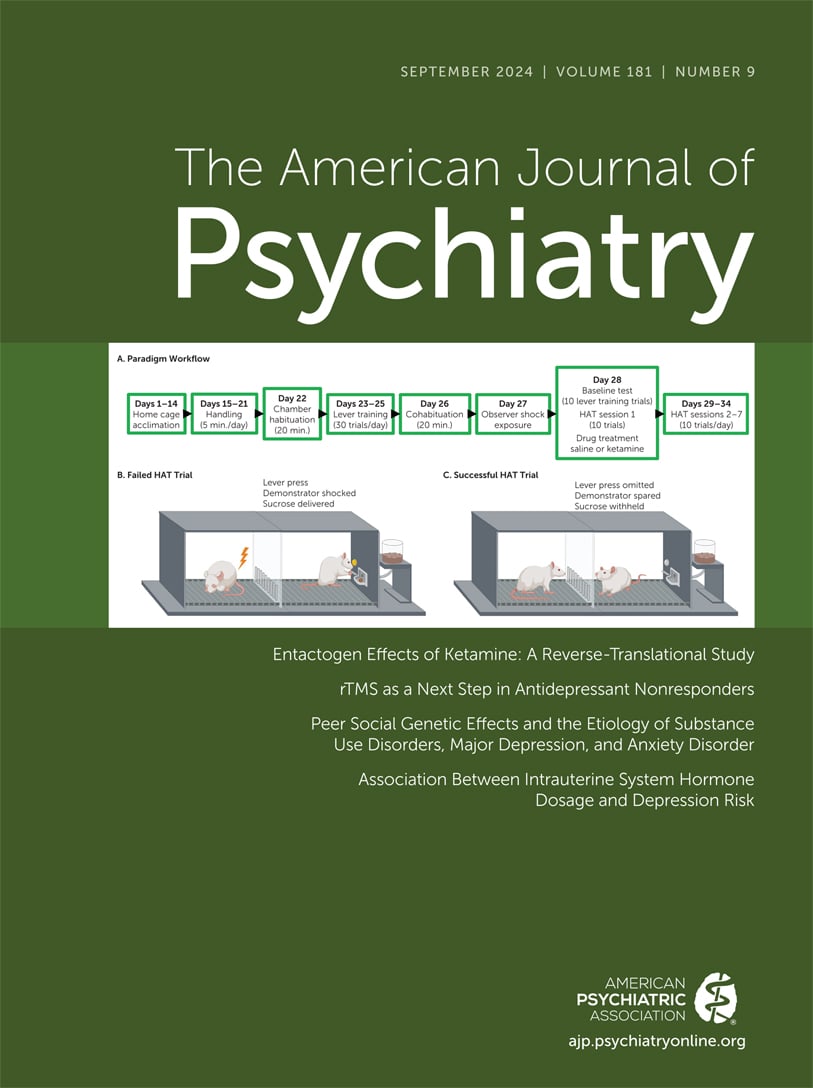American Journal of Psychiatry
- Volume 169
- Number 2
- February 2012
In This Issue
Perspectives
Editorial
Perspectives
Commentary
Perspectives
Images in Psychiatry
Perspectives
Treatment in Psychiatry
Publication date: 01 February 2012
Pages127–133The authors review abnormal thyroid function test results for psychiatric patients, who are often screened routinely. Although primary thyroid abnormalities can have significant psychiatric symptoms, most of the abnormalities detected are asymptomatic, ...
https://doi.org/10.1176/appi.ajp.2011.11040631Perspectives
Reviews and Overviews
Publication date: 01 February 2012
Pages134–140The authors review the incidence of persistent pulmonary hypertension in newborns of women treated with SSRIs. Three of six studies showed elevated risk, but all failed to control fully for the possible effects of depression itself, including shorter ...
https://doi.org/10.1176/appi.ajp.2011.11040553New Research
Articles
Publication date: 01 February 2012
Pages141–151Objectives: Evidence suggests that childhood maltreatment may negatively affect not only the lifetime risk of depression but also clinically relevant measures of depression, such as course of illness and treatment outcome. The authors conducted the first ...
https://doi.org/10.1176/appi.ajp.2011.11020335Publication date: 01 February 2012
Pages152–159Objective: Affective biases may underlie many of the key symptoms of major depressive disorder, from anhedonia to altered cognitive performance. Understanding the cause of these biases is therefore critical in the quest for improved treatments. Depression ...
https://doi.org/10.1176/appi.ajp.2011.11010137Publication date: 01 February 2012
Pages160–166Objective: The authors examined the utilization of stimulant medications for the treatment of ADHD in U.S. children during the period 1996–2008 to determine trends by age, sex, race/ethnicity, family income, and geographic region. Method: The 1996–2008 ...
https://doi.org/10.1176/appi.ajp.2011.11030387Publication date: 01 February 2012
Pages167–177Objective: It is unknown whether prolonged childhood exposure to stimulant medication for the treatment of attention deficit hyperactivity disorder (ADHD) increases the risk for developing abnormalities in blood pressure or heart rate. The authors examined ...
https://doi.org/10.1176/appi.ajp.2011.10111705Publication date: 01 February 2012
Pages178–185Methylphenidate treatment of ADHD in adults was associated with an increase in sudden death from ventricular arrhythmia, from 1 death per 1,000 person-years to 2 deaths. The effect was more marked at lower rather than higher doses, suggesting that lower ...
https://doi.org/10.1176/appi.ajp.2011.11010125Publication date: 01 February 2012
Pages186–194Objective: A major motivation for seeking disease-associated genetic variation is to identify novel risk processes. Although rare copy number variants (CNVs) appear to contribute to attention deficit hyperactivity disorder (ADHD), common risk variants (...
https://doi.org/10.1176/appi.ajp.2011.11040551Publication date: 01 February 2012
Pages195–204Objective: Attention deficit hyperactivity disorder (ADHD) is a common, highly heritable psychiatric disorder. Because of its multifactorial etiology, however, identifying the genes involved has been difficult. The authors followed up on recent findings ...
https://doi.org/10.1176/appi.ajp.2011.11060822Publication date: 01 February 2012
Pages205–212Objective: Behavioral inhibition is an early childhood temperament recently associated with altered striatal response in adolescence to incentives of increasing magnitudes. Since early childhood behavioral inhibition is also associated with risk for ...
https://doi.org/10.1176/appi.ajp.2011.11010006Attention Bias Modification Treatment for Pediatric Anxiety Disorders: A Randomized Controlled Trial
Publication date: 01 February 2012
Pages213–230Objective: While attention bias modification (ABM) is a promising novel treatment for anxiety disorders, clinical trial data remain restricted to adults. The authors examined whether ABM induces greater reductions in pediatric anxiety symptoms and symptom ...
https://doi.org/10.1176/appi.ajp.2011.11060886Communications and Updates
Letters to the Editor
Correction
Communications and Updates
Book Forum
Communications and Updates
Books Received
Official Actions
Past Issues
View Issues Archive
Vol. 181 | No. 12

Vol. 181 | No. 11

Vol. 181 | No. 10
